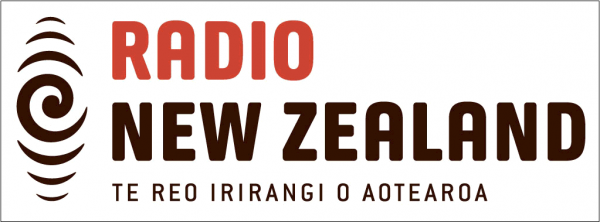.

.
A chilling look at where our debt-addiction may be leading us;
Australian Steve Keen was one of only a handful of economists to predict the Global Financial Crisis.
His most recent book, Can We Avoid Another Financial Crisis? leaves readers in little doubt he believes we’re heading that way unless we adopt a fundamentally different approach to private debt.
He says it’s all about debt – specifically private debt.
“We’re focussing on the wrong topic. We’re so focussed on government debt, what actually caused the crisis was run away private debt.”
And he says there are a number of ‘debt zombies’ in the world economy – New Zealand among them.
He calls New Zealand ‘Schrodinger’s Zombie’.
The walking dead have already had a financial crisis, he says, and have been experiencing weak growth, while ‘zombie-to-be’ countries avoided the 2008/2009 crisis by borrowing their way through it.
Now they have a bigger debt burden to deal with when the next crisis hits, he says.
“New Zealand sits in both camps. It had 190 percent of debt to GDP back in 2009, it bottomed out at about 170 percent then went back up to 180 percent of GDP. Most of that’s in the household sector so that’s driven the housing bubble in New Zealand, which of course the authorities normally deny, but it’s clearly there although in my opinion starting to turn right now.
“So you guys have had two bites of the zombie cherry.”
He says there is no doubt the bubble will burst.
.
Radio NZ – Sunday Morning – Steve Keen: The coming crash – 32′ 58″
.

—






The Natz won’t want to hear this it would rain on there party. This guy is ligit respected. But our media only hear what the government wants them to hear so this kind of factual stuff is consigned to National radio on a Sunday morning. Everybody should pay attention when Steve speaks he knows what he is talking about.
I remember well all the commentaries before 2007, when they promised endless growth for years to come, full employment, shortage of skilled and unskilled labour, and rosy tinted times for New Zealand. It went on up to 2006/2007, then some started to worry.
And soon after, sure enough, the US housing market collapsed, we know the rest.
The MSM in NZ are useless for the most part, they are like sycophants, the media personalities, love the limelight, many attend the same functions and dinners that many politicians and business managers attend, they all know each other, so would not dare spoil the others’ parties.
Meanwhile the mostly ignorant commoners watch, listen, read and wander in blissful blindness, trusting what they read in nice sounding headlines, and keep spending, on debt, and forget to think about tomorrow, the rainy days.
Well then. If you are listening to this you have very good tast,*
sleepy hobits are walking straight off the cliff debt must be respected
but banks need to take some responsibility like the interviewer pointed out 100 percent home loans. i think the squeal for a tax payer bailout will be loud rule changes to kiwi saver allow the banks to confiscate kiwi saver account on default and the open bank resolution policy directly targets savers. banks and the government will go after pools of capital and it will be those who are debt free will be the targets they cant get it from those in debt.
There’s no doubt at all that a global financial crash is coming. And its manufactured. Those creating it are not affected by it. They never suffer the consequences. They merely talk of ‘ corrections ‘ of the global economy.
They never mention the untold suffering , just ‘corrections and measures’,… as if its just a slight inconvenience we all must temporarily accept.
Several reasons why these globalists create these crises is to destroy private ownership- not of the big players but the little person. Put them in debt , take away what little they do have and then they become easy to control.
This tactic was discussed and planned decades ago. Its nothing new.
Following the second world war, these plans suffered a set back with the rise of Keynesianism economics. But, with the creation of such groups like Friedrich von Hayek’s Mont Pelerin Society , and lackeys like Roger Douglas , they devised a way to regain control.
That’s what asset sales and land sales to foreigners has all been in aid off. That’s what free trade deals such as the TTPA has been all about.
So in order to bump off the small time land owners you have to get them all in big debt.
Exactly like the sharemarket crash of 1987. Same principle.
Deal to all the small investors and who is there waiting in the wings to pick up all the devalued shares? The big boys.
That’s how the Bauers ( Rothchilds ) did it with the defeat of Napoleon at the battle of Waterloo. By spreading a rumor that Napoleon had won . Creating a panic – then buying up all the shares, stocks etc when the panic ensued .
And that’s how the Bauers/ Rothchilds and the globalists will do it again.
By lending out tanker loads full of cash , letting the plebs have some fun for awhile , then creating a crisis and suddenly reeling in all the loans.
And we the plebs, … not only never learn the lessons of history , … but swallow their lines about ‘ conspiracy’ and set ourselves up yet again to be their willing mugs.
It is not so much “manufacture” it is allowed to happen, as the ones that are the one percent or fewer holding the wealth of the world, they are of course protected. They act in wilful negligence, as they know, while they make lots more of money and accumulate more wealth, this can never continue forever, and the collateral damage is simply going to be left for the victims of it all to pick themselves up from again.
So it is like it has mostly been in human history, and revolutions and socially just times have been rare, but they happen, and we may well be due to see the largest one that ever occurred, happen some time soon.
The whole fiat financial system was a creation and fabrication.
Pretty much soon after finance moved away from tangible gold/silver coins etc. Been this way for a long time. But invented it certainly was. And its been manipulated equally as long. Very easy to fund movements, political party’s , warring factions and play both camps.
These people are not interested in simply ‘ money’ .
These are the very ones who invent ‘ money’ out of thin air using debt and interest. Moneys a joke to them and a joke they play on all the rest of us .
So what are they after if its not simply ‘ money ‘ ?.
Power?
And what is their definition of that ‘ power’ and end objective ?
To make the world a better place for you and me?
Unlikely.
The IMF’s report on NZ’s debt and overall situation, it is not that great either, and their recommendations would be stuff few here would welcome:
http://www.interest.co.nz/news/49581/imf-warns-nz-net-debt-gdp-will-top-100-5-years
NZ’s total net external debt, the post above talks about total debt, not net debt (after considering NZ’s investments and incomes from overseas):
https://tradingeconomics.com/new-zealand/external-debt
An older report from the NZ Herald:
http://www.nzherald.co.nz/business/news/article.cfm?c_id=3&objectid=11651662
Quote:
“Bloxham says there are a number of reasons why New Zealand and Australia rank so highly up the international ranks for household debt.
Partly it was because housing made up a larger share of household wealth than other countries because house prices were higher.
It was also down to the high number of individuals who own investment properties.
In other countries, like the US, investment properties tended to be owned by corporates, so the debt did not show up on household balance sheets.
“Here households own it directly.””
Read the ‘Top 10’ at the bottom of the article!
Other data shows some other stable developed economies having high household debt to income rates, even higher than NZ:
https://tradingeconomics.com/new-zealand/households-debt-to-income
This NZ Herald article may show the more worrying aspect, which is high increase in mortgage debt (June 7 last year):
http://www.nzherald.co.nz/personal-finance/news/article.cfm?c_id=12&objectid=11651660
Important to note:
“Fund manager and market commentator Brian Gaynor agrees the big issue now is housing debt.
“I’ve got a real concern about private debt. I think it’s far too high in New Zealand and it’s very leveraged into the housing market, which is still very strong and likely to get stronger. But at some point it will turn,” he says.”
“”There is no easy way out,” he says. “Our banking regulation has the kind of policy that allows us to feed on the property market. Of all the debt that is created in NZ, more and more is going towards mortgages because mortgages are perceived as less risky according to our rules and regulations.”
There are good reasons for why some apartment and other construction projects have been canned as of recent, because developers are starting to feel the credit crunch, as banks are more careful lending now. Banks have to watch their investments and their financial security, so while here in Auckland they have with the Unitary Plan now much more liberal rules for development, it will not get easier to address the housing crisis.
The government is between a rock and a hard place, high house and apartment prices, high immigration, all increasing demand, but limited ability by developers (also due to labour and materials constraints) to deliver.
They did not slow down immigration much, because they are addicted to immigration, as it keeps the economy “growing”, but with all reaching towards a crisis point now, we face a dilemma.
Once immigrants will come in fewer numbers, as they find no jobs and accommodation, and see high prices and disadvantages here, the whole house of cards can come to collapse rather swiftly. Many that bought property and took out much credit for this, they will end up with high repayments, also higher interest, and the market will get a harsh, painful correction.
We may be in pain for decades to come, like Ireland now finds it hard to correct after their GFC fallout crisis.
And as we know from past governments, they will then panic and sell much of assets and privatise and reduce spending, a reversal from the Budget they just presented us.
what can you say to all the debtors out there you have made your own beds sooner or latter the piper will come calling. The wise have used the record low interest rates to become debt free. debtors only have themselves to blame and there is no strategic default in NZ bankruptcy is going to be there only option. and please debtors don’t blame savers they have sacrificed a decent interest rate so you could pay your debts. you owe what you owe so pay up!
the big short must see
https://www.youtube.com/watch?v=vgqG3ITMv1Q
while agreeing with his general thrust he cast question on his position when he stated the NZ property market was unsupported by foreign investment….(unlike Australia??????)0
Comments are closed.